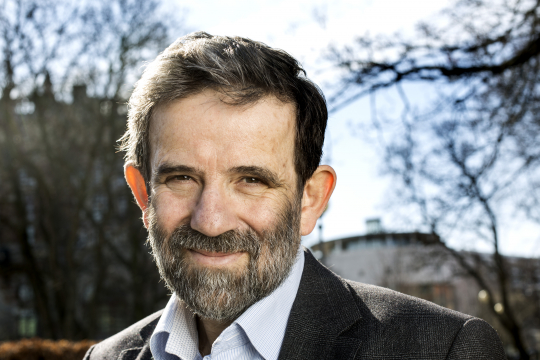Thomas Sterner will discuss carbon taxes and other policies to deal with climate change as invited key-note speaker at the 15th Global Conference on Environmental Taxation (GCET15) which will take place in Copenhagen, Denmark, from 24-26 September 2014.
Entitled “Environmental taxation and emissions trading in an era of climate change” this conference is organized by Aarhus University with involvement of EEA, the European Environment Agency, a body of the European Union located in Copenhagen.
Sterner´s recent Nature article on the social costs of carbon as well as his work as a coordinating lead author for Intergovernmental Panel on Climate Change (Working Group III) on the fifth assessment report on mitigation is of interest to the 150-200 participants expected to attend this conference. Among the participants are leading scholars within the disciplines of law, economics, accounting, public administration and policy sciences in USA, China and Europe as well as from experts from the OECD and IMF.
“The economists prescription seemed easy and clear enough. We need three things to mitigate climate change: A global treaty since climate is a global public good. We also need a price on carbon and other climate forcing agents, either through a tax or permit trade. In addition we need a policy to overcome the fact that the patent system is insufficient and there is thus a market failure leading to insufficient private research into clean energy. However, this is not quite so simple,” says Thomas Sterner.
In his key note speech Sterner will deepen the discussion and give an overview of IPCC conclusions on the choice of policy instruments. He will particularly address the potential role of taxation.
Carbon taxes have been tried in a few countries, although generally restricted to a limited number of sectors in the guise of various proxies such as fuel taxes.
In for example Sweden, carbon taxes are remarkably high, and Sterner will discuss how this has affected the Swedish economy. The whole of EU, Japan and some other countries have very high fuel taxes.
”IPCC mentions that this can reduce sectoral emissions as much as 50 per cent. Still carbon taxes and gasoline taxes are generally thought to be politically impossible because of distributional and political economy aspects”, says Sterner.
Finally, Sterner will discuss some theoretical pros and cons of taxes vis-a-vis other instruments such as tradable permits, regulation, technology policy and so forth.
“The truth is that progress on policy instrument adoption to date, is much too slow for the 2 degree target and currently we are on a path to at least three maybe four degrees. One of the few positive signs for the climate is the progress of renewables – particularly solar energy. This clearly raises the importance of technology policy,” says Sterner.
Other key-notes of the Global Conference on Environmental Taxation (GCET15) http://conferences.au.dk/gcet/ will address energy transitions, European Semester, Portugals EFR and border-tax arrangements. A selection of the conference proceedings will be published in ‘Critical issues in environmental taxation’ from Edward Elgar publishers.
This conference is taking place only weeks before IPCC will finalize its Synthesis Report, also in Copenhagen, 27-31 October. The IPCC Synthesis Report will synthesize and integrate material contained in the three Working Group Reports and Special Reports produced during the 5th or previous Assessment Cycles. It will consist of a Summary for Policymakers (SPM) and a longer report.
Karin Backteman
